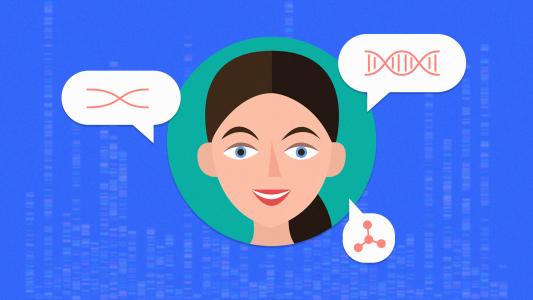Every living thing has a genetic code within its cells, called a genome, written in DNA. Scientists first figured out how to read or “sequence” DNA in 1977, and since then, they’ve sequenced the whole genomes of thousands of species, including animals, viruses, and humans.
While genome sequencing itself is cool (hidden code revealed!) being able to analyze those genomes is even cooler — within the code are insights that can help us treat diseases, understand pathogens, and even combat pandemics.
Today, scientists have access to handheld sequencing devices, which they’re using to sequence living genomes everywhere from under the sea to up in space. However, they still need to rely on specialized laptops for their genome analysis, which can be a burden when working in these challenging locations.
Now, a team of scientists from Cold Spring Harbor Laboratory (CSHL) has developed the world’s first mobile app for genome analysis — turning any scientist with a handheld sequencer and a smartphone into a mobile genetics laboratory.
Genome Analysis on the Go
Eight years ago, when Aspyn Palatnick was a 14-year-old high school student interning at CSHL, he and researcher Michael Schatz noticed that, while sequencers were getting smaller, the devices used for genome analysis weren’t.
Palatnick, who’s now a software engineer at Facebook, got to work, programming what would eventually become iGenomics — a free, open-source app for genome analysis.
In a paper published in the journal Gigascience, Palatnick and his collaborators report that the app can analyze the sequenced genomes of viruses and microbes about as quickly, accurately, and reliably as popular laptop-based systems.
Specifically, the app can map a newly sequenced genome to a reference genome, a common genome analysis process known as “read alignment.” This can tell you what an organism is or how closely related it is to others. It can also identify places where the sequenced genome differs from the reference — that’s known as “variant calling.”
Laptop Not Required
The app does all of its processing on the device — a major plus if a researcher is somewhere with unreliable internet access. However, this does limit the size of the genomes the app can analyze — viruses and microbes are doable, but something larger, like a human genome, isn’t.
Still, being able to analyze the genomes of germs can reveal insights, such as mutations, that could be key to treating infections — and now, scientists will be able to conduct this genome analysis without having to lug an expensive laptop around with them.
We’d love to hear from you! If you have a comment about this article or if you have a tip for a future Freethink story, please email us at [email protected].






